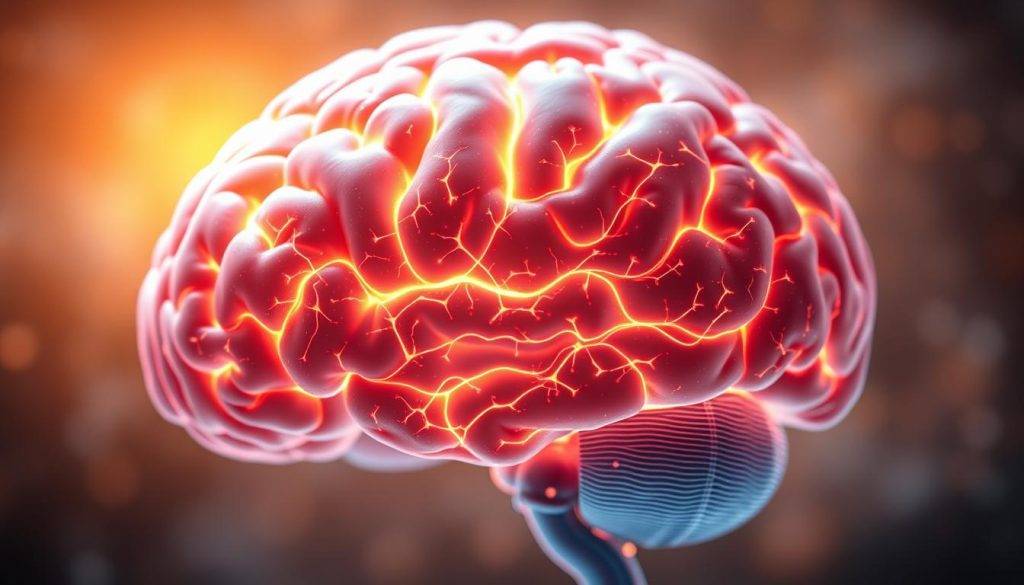“We do not remember days; we remember moments.” — Cesare Pavese.
Revisiting uplifting scenes works like a simple mental reset. Lab studies show that when participants recall happy events during a stressful task, their stress-hormone spike is far smaller than when they recall neutral scenes.
Brain scans back this up: positive recollection lights up prefrontal areas tied to emotion control and focused thinking. Training people to pull up specific pleasant memories lowers depression scores and steadies mood after tough events.
Here, memories means clear, vivid scenes—anchored in place and time—like a shared dinner or a graduation day, not a vague summary. Socially rich experiences tend to last and support belonging.
This article blends research with simple tools you can use today—photo curation, memory boxes, journaling, and quick prompts. Expect practical gains: lower perceived stress, steadier mood, and firmer self-belief—built from small, repeatable habits.
Key Takeaways
- Recalling vivid, happy scenes reduces stress responses in experiments.
- Positive recall engages brain networks for emotion regulation and control.
- Specific, social memories stick best and boost belonging.
- Small daily habits make meaningful moments easy to access.
- Evidence-based techniques complement other mental health strategies.
Why Positive Memories Matter for Mental Health and Everyday Life
Pulling up a single vivid afternoon can blunt a stress reaction and help restore focus. In experiments, people who recalled a clear happy scene after a standardized stressor showed far smaller rises in stress hormone than those who recalled neutral events.
That quick shift works by redirecting attention away from immediate strain. Intentional recall eases body and thought responses within minutes, making mood steadier and thought clearer. This is practical relief—not avoidance; it helps the nervous system settle so problem-solving improves.

From stress to solace: how happy recall buffers anxiety
When someone uses a specific, time-anchored scene — a place, a smell, a single moment — the mind stops looping on threats. Short rehearsal makes this tool available during work, parenting, or conflict.
Inside the brain: top-down control during recall
Neuroimaging shows increased prefrontal activation during recall, which helps reframe challenges and regulate feelings. In other words, the brain can interrupt negative cascades and guide calmer choices.
“Small, practiced memories become reliable anchors in noisy moments.”
- Tip: rehearse one vivid scene daily so it’s ready when you need it.
The Power of Positive memories: What Science Says About Cortisol, Dopamine, and Resilience
Laboratory work finds that retrieving a detailed pleasant episode after pressure blunts hormonal stress spikes. In an ice‑water hand immersion study, people who recalled happier events showed minimal increases in cortisol compared with those who recalled neutral scenes.

Imaging links this effect to top‑down control in prefrontal areas. That activation supports calmer physiological responses and clearer thinking. A University of Cambridge study found that youth who remember detailed, time‑bound moments have lower cortisol levels and fewer negative self-appraisals.
Research also ties recall to dopamine. Reconnecting with wins and warm times triggers reward circuits, lifting mood and nudging motivation toward meaningful goals.
Competitive memory theory explains how this works: specific positive recollections compete with negative self-talk. A 2018 U.K. trial training people to retrieve targeted scenes produced significant reductions in depression scores.
- Practice tip: rehearse one vivid, social snapshot daily so that, under stress, your brain finds a stabilizing memory faster.
- Social boost: sharing stories with friends deepens belonging and strengthens resilient narratives about life.
“Small, repeated recall sessions condition the brain to prefer positive representations over negative loops.”
Practical Ways to Revisit and Preserve Happy Memories for Better Health
Simple, repeatable cues—an album, a labeled box, a daily note—make past good times quick to retrieve. These small rituals boost mood and strengthen your ability to call up warm moments during stress.

Photo albums, galleries, and restoration
Turn phone photos into curated albums that tell a clear story. Pick themes—trips, family milestones, weekday wins—and move select photos into labeled folders.
Print favorite shots and use light restoration on older prints. Pair images with short captions to keep context alive and deepen emotional recall.
Memory boxes and scrapbooks
Assemble a memory box with tickets, letters, and labeled photos. Tangible items and a tidy box invite spontaneous reflection.
For loved ones with dementia or Alzheimer’s, add names, dates, and places so each item supports identity and gentle reminiscence with family and friends.
Journals, planners, and custom calendars
Keep a short photo journal: one image and three lines about who was there, where, and how it felt. Use a monthly planner or custom calendar to revisit key experiences.
Make it specific
Anchor moments in time, place, and senses. Note sounds, scents, and textures to make recall vivid. A five-minute evening routine scanning a small album or box builds lasting retrieval ability.
“Small displays and brief notes turn scattered scenes into a reliable source of comfort.”
Conclusion
Simple rituals that bring back a clear, joyful moment can change how people respond to pressure. Start small, curate five photos into a mini-album and add short captions with time, place, people, and feelings.
Research shows recalling specific pleasant scenes nudges dopamine, activates top‑down control, and keeps stress levels lower. Rehearsing these positive memories a little each day builds a practical library you can reach for in hard times.
Share one story with family monthly and keep three reliable memories handy as a quick reset. This brief, repeatable habit supports health, steadies mood, and makes daily life richer—one small return on your time.
FAQ
How do happy memories reduce stress and lower cortisol?
Recalling joyful moments triggers the prefrontal cortex and reward circuits, which downregulate stress responses. Research shows that brief, focused recall of uplifting events can lower cortisol spikes by shifting attention away from threat and toward safety and reward, producing calming physiological effects.
Can revisiting good memories help prevent or reduce depression?
Yes. Practices that strengthen specific, time-bound recollections increase emotional clarity and resilience. Detailed memories counter overgeneral thinking, improve mood regulation, and support therapy techniques such as cognitive-behavioral interventions that target negative self-talk.
What role does dopamine play when someone remembers positive experiences?
Remembering pleasurable events activates dopaminergic pathways tied to motivation and reward. That boost encourages approach behaviors, enhances motivation for healthy habits, and amplifies feelings of joy—helpful both for daily functioning and long-term well-being.
How often should people practice recalling happy moments to see health benefits?
Short, regular sessions—daily or several times per week—work best. Even one to three focused recalls of meaningful events a day can build resilience, keep stress hormones in check, and gradually strengthen neural pathways linked to positive emotion.
Are there simple techniques to make memory recall more effective?
Yes. Anchor memories with sensory details—sights, sounds, smells—and pinpoint time and place. Use photographs, a memory box, or a short journal entry to cue recall. Rehearsing with family or friends also reinforces emotional clarity and social bonding.
Do photo albums and memory boxes really improve mental health?
Tangible cues like albums and boxes provide accessible retrieval triggers that make recollection easier and richer. They support sustained recall practice, promote social sharing, and create rituals that enhance meaning, belonging, and stress reduction over time.
Can sharing memories with friends and family change brain responses?
Sharing activates social and reward networks, strengthening social bonds and amplifying positive affect. Conversational recall provides corrective feedback, context, and validation—elements that help reframe experience and reduce isolation-related stress.
Is there scientific evidence linking memory recall to cortisol changes?
Multiple studies report that positive recall can blunt cortisol responses to acute stressors. While effects vary across individuals and contexts, consistent practice of positive recollection shows measurable impacts on physiological stress markers in controlled experiments.
How can someone create a useful memory routine with limited time?
Use micro-practices: a single photo cue during a morning routine, a 2–3 sentence gratitude entry at night, or a weekly call to share a favorite story. Small, repeatable actions build neural habits without needing large time investments.
Are there risks to focusing on past positives instead of present problems?
Balanced use is key. Positive recall supplements—not replaces—problem-solving and therapy when needed. It boosts resources for coping and motivation, but persistent life challenges still require practical action and, when appropriate, professional mental health support.




























































